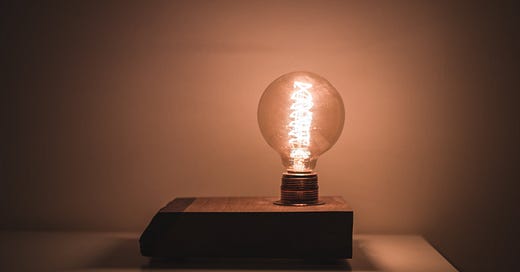#3 Why do we believe what we believe?
Our beliefs are central to us. How do we form them and how can we keep on evolving them?
Our beliefs are core to who we are. Some truths, that we hold to be true, are so close to us that we clam up when any new information comes that questions our notions. Lets delve a bit into that.
Nobody would claim that they are illogical. For each of us our perspectives are quite logical, driven from our experiences and knowledge. Our experiences are significant to us. And our knowledge we believe true. Because it is from sources we trust and usually it falls into line with our already belief system. All of these are so interlinked, that it is almost impossible to extract ourselves from them and critique them. Or as I put it, have a conversation with ourselves. So lets declutter this.
Belief system is a combination of experience, knowledge, logical deductions and faith. Faith and its influence is critical in all of these, but it is a far more complex concept with many implications. So I am planning to write on it separately. For today’s topic at hand the rest 3 parts are sufficient.
Experience means the fact or state of having been affected by or gained information through direct observation or participation.
Our past experiences guide us in our life. But we have to realize it is subjective. We can rarely generalize based on just our experiences. Each of us are just one in more than 8 billion people (0.000000000125 %). Just imagine how insignificant we are compared to all the people who have ever lived. So it is fair to say that the notions we hold are extremely minuscule, possibly negligible comparatively. But yes, that doesn’t mean we are wrong. But chances of it is high. Now the second part is knowledge.
To have knowledge means to know or be aware of things. Knowledge is understanding gained through learning or experience.
Similar to experience, our knowledge is also limited. No one can ever know everything. And what we know can be biased. We tend to read more of what we like and believe. Especially the digital world caters to our likes more than enhancing our perspective. And we depend on this knowledge. We all will get influenced in ways we don’t even realize. On top of that there is active manipulation, misinformation and war of narratives.
That brings us to our next important point, which is, Logic. We usually see logic or being logical as the epitome of truth. If something is illogical then it is false and vice versa. But is being logical in our thoughts enough?
Logic is a method of reasoning that involves a series of statements, each of which must be true if the statement before it is true.
To be effective in logical reasoning, it is important to understand logical fallacies. For now, lets just look into one: the hasty generalization fallacy (or jumping to conclusions). It occurs when we use a small sample or exceptional cases, to draw a conclusion or generalize a rule. An example, “My father smoked four packs of cigarettes a day from age 14 and lived until the age of 95. So smoking really can’t be that bad for you.” Here, there is insufficient evidence (i.e., the exceptional case of one person) to draw a conclusion (smoking is not that bad). And we now know “just our experience” is a small sample or can be an exceptional case or quite frankly insufficient evidence. So imagine we making our logical deductions based on our experiences or our knowledge alone. And those deductions in turn becomes our real life decisions.
I am not trying to destroy our confidence or belittle our experiences. That is not point here. But let’s don’t get blinded by them either. If our views and notions haven’t changed for a long time, then that means we are cut off from the world. Or we fear new information that threatens our knowledge base. Complete denial even if new valid info comes in is because our truth, purpose and life is depended on our beliefs. That defines and drives us. It would shatter our core being, to question or change it. But that is exactly how we grow.
So things being the way they are the only thing we can do about it is to be brave. Be brave enough to interact with more people with different ideas and experiences. Respect others and their notions like you would like to be respected. Critically examine and be empathetic. Find answers for the questions that we have. And for sure we have questions. Let’s not fool ourselves that there aren’t. Why are we here if not for the answers? Let paraphrase from something I heard long back.
Be brave enough to test out your notions and beliefs. Converse with different people. Either you gain more confidence in your views by knowing you are right. Or you will grow in your knowledge and gain a new perspective. It’s a win-win.
Read, and keep reading. Listen, and listen actively. Explore different ideas & culture. Travel. Experience and enjoy :)






